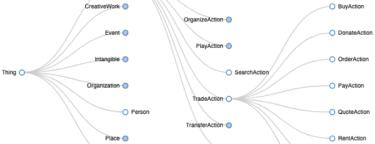
Stop Publishing Pages! – Content Strategy MeetUp Talk Highlights
I recently had the privilege of speaking to the Seattle Content Strategy MeetUp group about structured content, semantics, and meaning-making—and tried to convince them to stop publishing pages.
Here are a few highlights from the talk:
- Voice and AI-driven smart agent technologies are transforming the way we interact with content online. This impacts the way we design and structure information across the board—even when we’re not designing explicitly for voice.
- In addition to meeting our information needs by going to and reading “pages” online, we also now rely on algorithms to aggregate content for us from different sources, and to infer our needs based on our questions and deliver custom, tailored responses.
- “Pages” as we usually think of them on the web are still fine for some information seeking behaviors, but they can be utterly incomprehensible to the algorithms that deliver aggregated and inferred responses.
- Deliberate, systematic information design using semantic HTML and structured, linked data help make the resources we publish accessible to humans and algorithms alike. Both of these approaches depend on a foundation of structured content to be successful.
- As the amount of online content continues to grow, we will increasingly rely on algorithms and IA to find and understand it. But: algorithms are susceptible to same “availability heuristic” that affects humans: this is the mental shortcut that suggests that the information that’s the easiest to recall and understand is often perceived to be the most “correct.” This means that on the WWW of 2020 and beyond, poorly structured content is out-competed by well structured content.
- Good web semantics and structured data help even the most basic web sites communicate effectively on the modern web of documents, voice technologies, and smart agents.
- In the words of the mighty Karen McGrane: “You don’t get to decide which platform or device your customers use to access your content: they do”
- By shaking free of “pages” and focusing on structured, semantic, connected resources as foundational elements of information design, we can better prepare the organizations we work with to maintain greater control over the accuracy and integrity of their messages, and to communicate effectively with their users wherever and however those users choose to engage with content.
This talk is part of an evolving set of ideas, concepts, and research I’m conducting into communicating effectively online. I hope to present a next iteration of it soon, so stay tuned for upcoming event announcements.
Interested in having me to speak at your organization or event? I’d love to hear from you! Get in touch